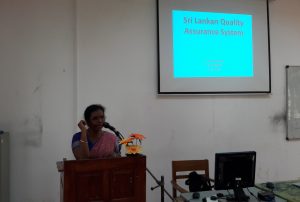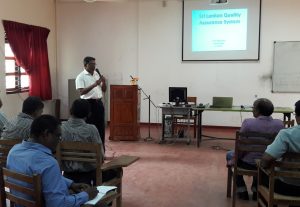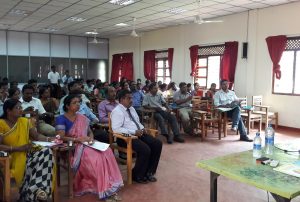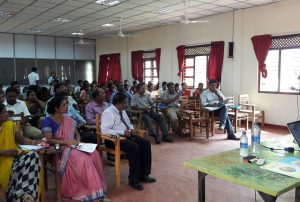Role of IQAU & IQACs
The primary responsibility of IQAU & IQACs is to promote the internalization of best practices
among individuals as well as within all spheres of governance and management relating to the academic
and administrative system of the university, thereby ensuring continuous quality enhancement.
Quality Principles
The University of Vavuniya (UOV) believes that the following principles should guide its approach to quality assurance:
- Quality assurance should not detract from or become a substitute for quality.
- Quality assurance operates at University, Faculty, Departmental, and Unit/Center levels, ensuring collective responsibility through bodies such as the Senate, Academic Boards, Faculty Boards, and Management Committees.
- Quality assurance should be preliminary to quality enhancement, with greater energy and resources devoted to the latter.
- Good internal evidence, including student opinion, examiner reports, and performance data, should support assurance and enhancement processes.
- Findings from quality assurance should be shared across departments to highlight best practices and demonstrate to students that quality is prioritized.
- Departmental teaching, learning, and assessment practices should be reviewed regularly (e.g., teaching observation) to assure quality, support staff development, and share practices.
- The UOV must be able to demonstrate its standards to students and stakeholders.
Terms of Reference of the Coordinating Committee of IQAC
- Guide the IQAC in adopting relevant by-laws prescribed by the University for governance and management of IQAC.
- In liaison with the Curriculum Development Committee, promote adoption of university guidelines and UGC/Ministry standards (e.g., SLQF, Course Unit System, Unified GPA, OBE-SCL, blended learning, and assessments).
- Promote internalization of quality principles prescribed by UGC-QAAC within the Faculty, covering programme management, curricula, teaching, learning, assessments, and student services.
- Guide the IQAC to design and implement regular internal quality reviews.
- Review EQA (Institutional & Study Programme) and IQA reports, and adopt action plans based on recommendations.
 |
 |
 |
 |
